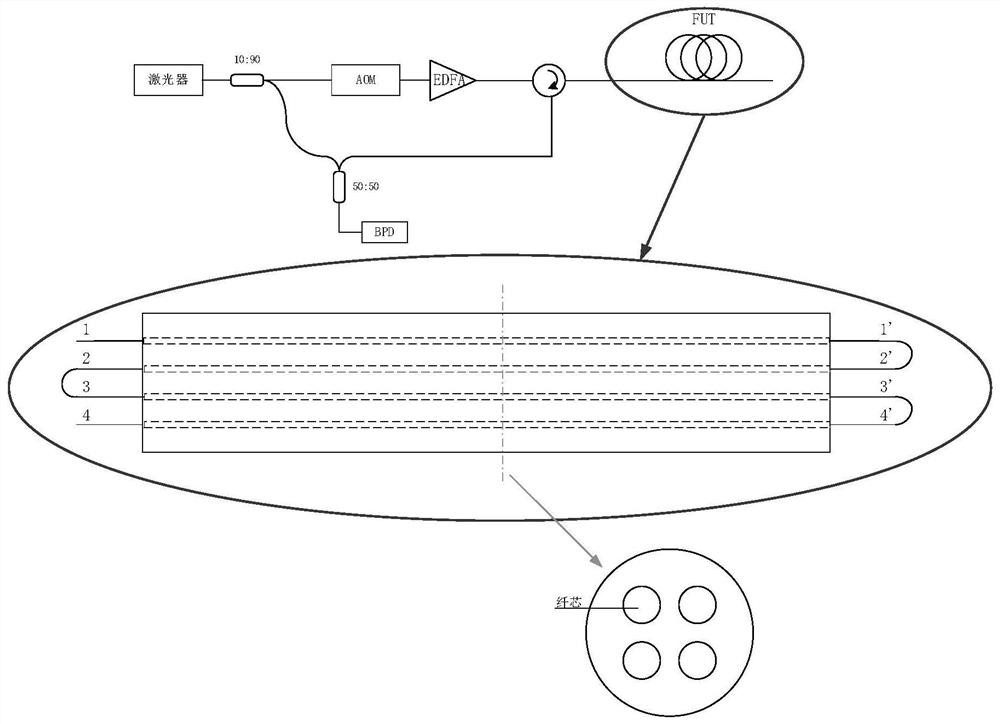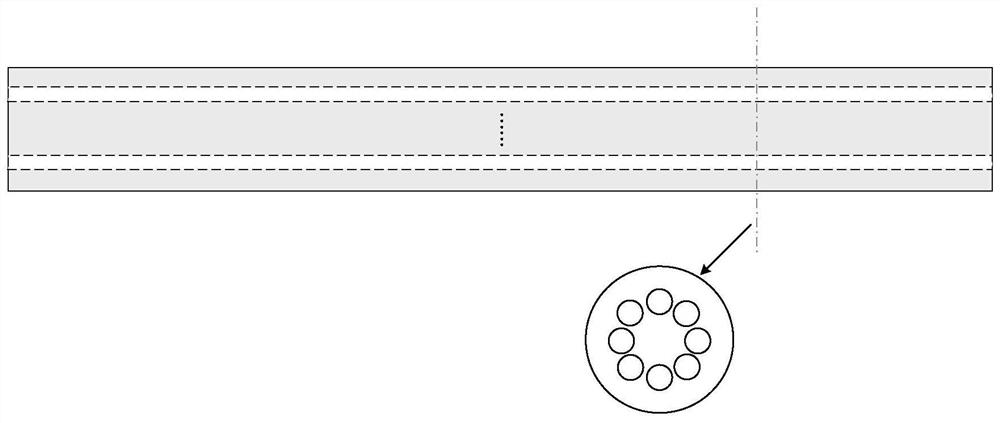A Method of Reducing Dead Zone Probability in φ-otdr System Based on Space Division Multiplexing
A technology of OTDR and space division multiplexing, applied in the direction of using wave/particle radiation, instruments, measuring devices, etc., can solve the problems of reducing the probability of dead zones, reduce the probability of phase resolution errors, and reduce the rate of false alarms Effect
- Summary
- Abstract
- Description
- Claims
- Application Information
AI Technical Summary
Problems solved by technology
Method used
Image
Examples
Embodiment Construction
[0025] Embodiments of the present invention will be described below in conjunction with the accompanying drawings.
[0026] Such as figure 1 As shown, on the basis of the traditional coherent detection Φ-OTDR structure, the present invention uses multi-core optical cables or multi-core optical fibers to replace single-core sensing fibers, such as figure 2 shown. The multi-core optical cable or the cores of the multi-core optical fiber are connected end-to-end in series, so that when a disturbance is applied to a certain position of the optical cable, multiple signals will be obtained at the same time. The connection mode between the cores of the optical fiber and the transmission direction of the optical pulse are as follows: image 3 shown.
[0027] Based on the above system, the present invention proposes a method for reducing dead zone probability based on space division multiplexing in the Φ-OTDR system. This method is based on multi-core optical fiber or optical cable...
PUM
 Login to View More
Login to View More Abstract
Description
Claims
Application Information
 Login to View More
Login to View More - R&D
- Intellectual Property
- Life Sciences
- Materials
- Tech Scout
- Unparalleled Data Quality
- Higher Quality Content
- 60% Fewer Hallucinations
Browse by: Latest US Patents, China's latest patents, Technical Efficacy Thesaurus, Application Domain, Technology Topic, Popular Technical Reports.
© 2025 PatSnap. All rights reserved.Legal|Privacy policy|Modern Slavery Act Transparency Statement|Sitemap|About US| Contact US: help@patsnap.com



